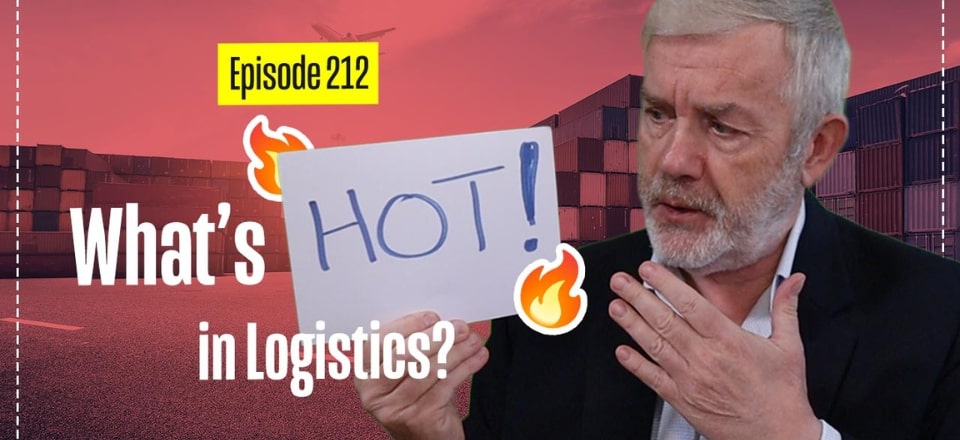Understanding the latest trends in the logistics industry gives you and your company a strong advantage.
Do you know what’s happening in logistics right now? The trends might surprise you.
Let’s get the latest insights from Rob!
The logistics industry is constantly evolving, with new trends and challenges shaping its landscape. Drawing from over 200 global client projects, I’ve pinpointed several critical areas that are currently in focus.
Inventory Management
Inventory management has become paramount. During the COVID-19 pandemic, companies stockpiled goods, leading to an overabundance of inventory. Now, businesses are striving to reduce these levels. Effective inventory management relies on accurate demand forecasting and proper stock deployment across networks. Many companies still face issues with backorders and misallocated inventory due to inadequate planning tools. Enhancing these processes is vital for operational efficiency.
Warehousing Challenges
Warehousing remains a significant challenge. Securing space is particularly difficult in countries like Australia. While some companies opt to outsource warehousing, others maximize their existing space. Simple changes in layout and storage methods can boost capacity by 20-30%, postponing the need for new facilities. Automation also plays a role, but it must be weighed against costs and local labor availability.
Freight Issues
The freight sector is grappling with driver shortages and long lead times for new trucks. Companies are revisiting their freight contracts and rate structures to optimize costs. It’s not just about the rate per ton or pallet but about finding the most suitable rate structure. Conducting thorough audits of existing contracts can yield substantial savings without the hassle of changing carriers.
Outsourcing Warehousing
Outsourcing warehousing has been popular for decades, but it’s becoming increasingly difficult due to space and labor shortages. Third-party logistics providers (3PLs) are more selective, and businesses need to streamline their operations to be attractive clients. Improving internal processes before outsourcing can prevent complications and ensure better service from 3PLs.
Cost to Serve
Understanding the cost to serve is crucial. Knowing the profitability of different customer types and product groups is essential. Many companies overlook potential savings because they haven’t thoroughly analyzed their costs. Conducting a cost-to-serve study can identify inefficiencies and guide improvements, preventing profit from leaking out of the supply chain.
Technology Adoption
Technology is a hot topic in logistics, but its adoption varies widely. Large companies with significant scale and speed-to-market needs are at the forefront. Middle-sized businesses are more cautious, adopting technology only when it addresses specific issues. The key is to identify the problem first and then find the appropriate technological solution rather than adopting technology for its own sake.
Note: Make sure to watch the full video above for detailed information of this topic.
Related articles on this topic have appeared throughout our website, check them out:
- Struggling with Logistics Challenges? A 3PL Might be Your Salvation
- Raising Productivity in Logistics Operations: The BHAG Approach
- Selling Online? What It Means for Your Logistics Network Design
- Reverse Logistics: Who Does it Well?
- Getting Aligned with Business Goals for Successful Logistics Outsourcing
Editor’s Note: The content of this post was originally published on Logistics Bureau’s website dated October 04, 2023, under the title “What’s Hot in Logistics?“.


